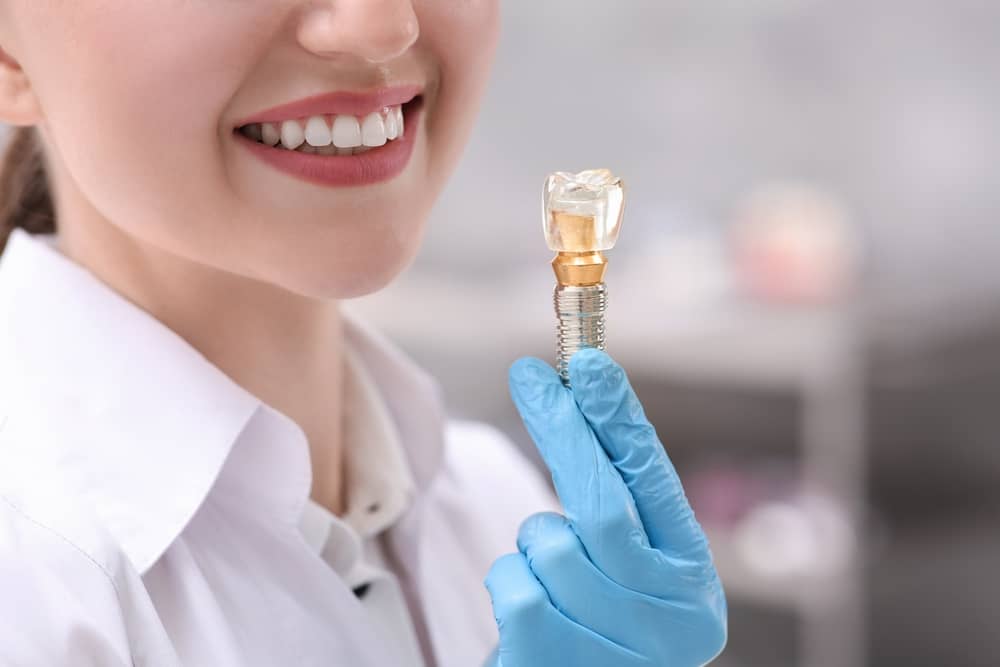Robotic-assisted treatment has shown promise in improving implant outcomes in various medical procedures. While the specific applications and benefits may vary depending on the type of implant and procedure.
What Is Robot-Assisted Surgery?
Robot-assisted surgery refers to a type of minimally-invasive surgical procedure that utilizes robotic systems to assist surgeons during the operation. It combines advanced technology, computer-controlled robotic instruments, and a highly trained surgical team to perform procedures with enhanced precision and control. Yomi will not replace your implant surgeon; instead, it will help to guide your surgeon to plan and place your implants more exactly, more quickly, and with greater accuracy.
Here are some general ways in which robotic-assisted treatment can enhance implant outcomes:
- Precision and Accuracy:
- Enhanced Surgical Precision: Robotic systems provide surgeons with a higher level of precision and accuracy during implant The robotic arms can execute movements with a level of precision that may be challenging for human hands alone. This precision is crucial for tasks such as bone preparation, placement of implants, and alignment adjustments.
- Real-time Imaging and Navigation:
- 3D Visualization: Robotic systems often incorporate advanced imaging technologies, such as 3D imaging and real-time navigation. This allows surgeons to have a more detailed and accurate view of the surgical site, enabling them to make informed decisions during the procedure.
- Intraoperative Guidance: The robotic-assisted systems often come with navigation features that help guide surgeons through the optimal path during surgery. This reduces the risk of errors in implant placement and ensures better alignment.
- Minimally Invasive Procedures:
- Smaller Incisions: Robotic-assisted surgery often allows for smaller incisions compared to traditional open surgeries. This can lead to reduced tissue damage, less postoperative pain, and quicker recovery times for patients undergoing implant procedures.
- Improved Ergonomics for Surgeons:
- Enhanced Maneuverability: Robotic systems provide surgeons with improved ergonomics and greater control over instruments. This can reduce surgeon fatigue during lengthy procedures and enhance overall performance.
- Customization and Personalization:
- Tailored Approaches: Robotic-assisted systems can be programmed to execute highly specific and customized movements based on patient anatomy and the requirements of the implant procedure. This level of customization can contribute to better-fitted implants and improved overall outcomes.
- Reduced Complications:
- Lower Complication Rates: The precision and accuracy offered by robotic-assisted systems may contribute to a reduction in complications such as misalignments, malpositioning, and damage to surrounding tissues. This can result in improved long-term outcomes for patients with implants.
- Enhanced Training Opportunities:
- Simulated Training: Robotic-assisted systems often include simulation modules that allow surgeons to practice and refine their skills in a controlled environment. This can contribute to better-trained surgeons, leading to improved implant outcomes.
While robotic-assisted treatment has demonstrated several advantages, it’s essential to note that the effectiveness may vary based on the specific procedure, the prosthodontist experience, and other factors. The integration of robotic technology into healthcare continues to evolve, and ongoing research is essential to further assess its impact on implant outcomes.
Sharp Dentistry & Associates in Miami offers all dental specialists you may need under one roof and supports them with the latest CEREC®, CAD/CAM and a CT-Scan technology to enhance their patient’s treatment plans and follow-up care. It is a solution that allows patients and their family members to receive outstanding dental care at one well-equipped location. And to ensure that your smile aesthetic goals are met, the Sharp Dentistry & Associates team uses the Digital Smile Design (DSD) protocol.

